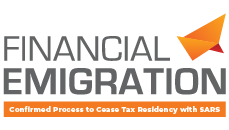KNOW YOUR TAX LIABILITY
SOUTH AFRICAN EXPATRIATES
The amendment to the expat tax exemption that came into effect 1 March 2020 will have a tremendous impact on both employers and employees respectively.
We have consulted with some of the largest corporate groups in South Africa as well as in places such as Democratic Republic of Congo, Mauritius and the Middle East to raise corporate as well as individual awareness and the reality is that the majority of companies with South African employees working abroad are unprepared for the impact that the expatriate tax changes will have.
What is the expatriate tax change?
Prior to March 2020 South African tax residents working abroad were exempt from income tax on their foreign earned income if they met the required days test. In order to qualify for the exemption, the individual/employee needed to be outside of South Africa for more than 183 days as well as to be abroad for 60 days consecutively.
This is now changed and the amendment to the expat tax law will result in all foreign employment earnings being taxed on the surplus of R1.25 million (this is inclusive of any allowances or benefits that the company covers) at the applicable marginal tax rate. This amount is an increase from the previous R1 million threshold.
Ensuring tax compliance from an employer and an employee perspective
Employers should ensure that they are fully prepared and equipped to deal with the amendment by first planning where you assign and resource your expats. This should be done in a careful manner so as to mitigate the additional tax cost as far as possible.
This should be followed by an equally difficult task, which is to adjust these expatriates’ remuneration packages to ensure they earn a market related net-pay whilst maintaining their agreed upon assignment remuneration packages as per their specific conditions.
Employees should also ensure that they are fully prepared by investigating what the impact this tax law will have on their foreign earned income.
If the above is not done, we foresee a major impact on employees’ morale and/or payroll non-compliance which may negatively affect productivity and result in interest charges and penalties from SARS as a result of non-compliance.
The tool to assist companies and individuals with tax compliance
With the necessary planning and adjustments, you can prevent the devastation of losing key resources as a consequence of the coming law changes. Be that as it may, due to the tedious and time-consuming nature of the above process, companies are reluctant to put this in place and individuals do not have the tools to make informed employment decisions.
We have developed an expatriate tax calculator which provides both employers and individual expatriates the opportunity to explore their tax obligations post March 2020.
We are well versed in assisting companies to implement correct tax measures – which includes employment contract reviews. We are also at the forefront of this expatriate tax change as we have developed a unique expatriate tax calculator which is now available for use.
To avoid possible penalties, interest and criminal prosecution, we urge employers to take the necessary actions as soon as possible.
AUTHORS

Tanya Tosen
Master Mobility and Tax Specialist

Patrick Kabamba
Chartered Accountant (SA)



